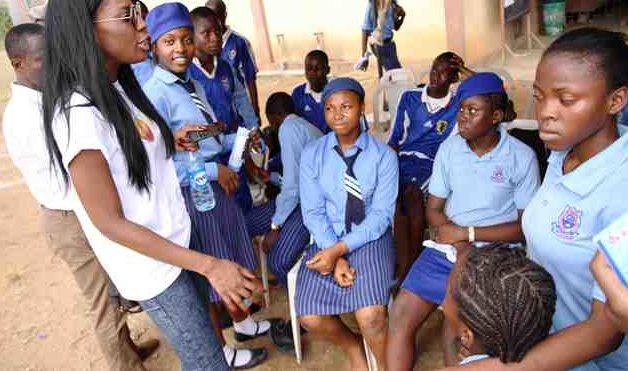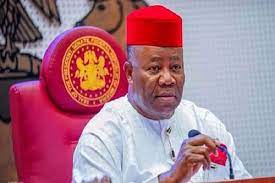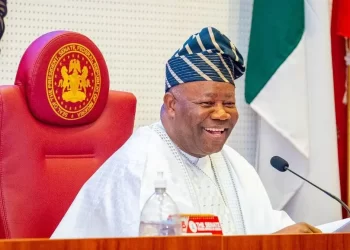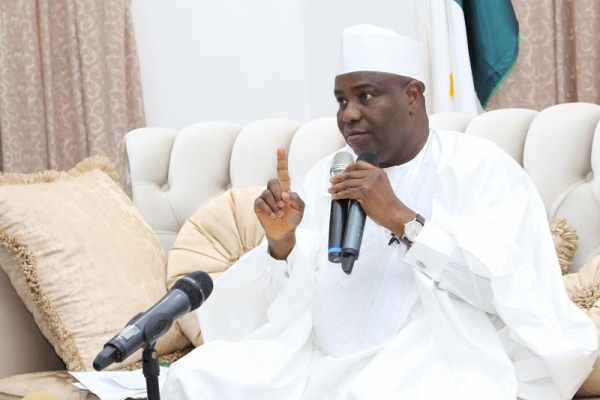The first ever International Day of Education in celebration of the role of education for peace and development was marked on January 24, 2019. The Next Edition talked to stakeholders in Nigeria to give a fair assessment of the sector.
The importance of education in the life and development of an individual or a nation cannot be over-emphasized. Education is the bedrock of development in any nation. It is the foundation upon which all other sectors are built.
Experts say education is not only a key goal on its own in the 2030 Agenda for Sustainable Development but the one goal that gives people the means to realize it. Over time, the contribution of education has been pointed to poverty eradication, improving health outcomes, promoting gender equality, environmental sustainability and building peaceful and resilient societies.
In its effort to portray this importance, the United Nations General Assembly, on December 3, 2018, adopted with consensus, a resolution proclaiming January 24 as International Day of Education, in celebration of the role of education for peace and development.
In Nigeria, stakeholders have flayed the falling standard of education in the country and called on those concerned with educational development in the country, governments at all levels to sit up and ensure proper funding and monitoring of educational services for improved standards.
Stakeholders are also of the view that if nothing is done urgently to revamp the sector; the hope of unborn children in the country cannot be guaranteed.
A lecturer in the Faculty of Education, Benue State University, BSU, Makurdi, Professor Linus Iorember Zaria, blamed the falling standard of education on lack of proper attention to the educational sector by government saying government is more concerned with politicking.
“Government has been playing politics with education. We are used to having lofty, very beautiful policies but lack the political will to implement them. And nobody actually cares.
“Now if you go round the country today, all the lecturers are on strike because they want the quality of education to improve. How does the quality improve in this case? The facilities, the infrastructure that are meant to be put in place for any worthwhile teaching and learning in these tertiary institutions are not just there.”
He regretted that government finds it difficult to spend some little more money for education. “They prefer to invest money in other things. This nonchalant attitude by government can be said to be the major reason for the declining standards of education in this country. For us who are teachers, we are prepared to work if we are given the tools to work.”
He also noted that most states are unable to pay teachers salaries questioning, “How do you expect a teacher who has not been paid for 10 months to go to work and put in his best? It is not possible.”
Prof. Zaria who is also the coordinator for Sandwich Programme in the University, said the falling standard which began in the early 1980’s has been getting worse especially with the explosion in the population of the students. He noted that students were not many in the past and teachers put in their best and could have that control over the number of students that were placed under them.
He also blamed lack of enthusiasm and dedication on the part of teachers as some factors responsible for the falling standards. “Today, teachers are hardly motivated and so that lack of enthusiasm by teachers has also contributed. Again currently, we have a crop of teachers that are not as dedicated as the ones we had before when some of us were youths.
He also said parents should share in the blame for the falling standard of education. According to him, the parents we have nowadays are most time, over protective of their children. “In those days, if a child went to school and misbehaved and a teacher beat him, the child had no right to run home and complain because the parents will beat him up again.
“But nowadays, you punish somebody’s child, the parents will be on your neck and if you are not careful, they will take you to the law enforcement agents for assaulting the child. So, how do you expect those kind of children to actually have respect for the teacher and for learning generally. Again, the children themselves have this lack of seriousness. The whole thing is intertwined.”
As a way forward, Zaria proposed that everybody has to sit up. “First, government would have to realize that you don’t joke with education if the nation wants to develop. Money should be made available or at least the basic requirements of the United Nations that 26 percent of the nation’s budget should be devoted to the education sector. Once you do that, you have actually started”.
He said parents have to be more tolerant with what happens in schools. “Parents should provide for their children and should also join the teacher in trying to mould the character of the little ones.”
On the part of teachers, the professor urged them to be more serious about what they do in school advising further that teaching should not be taken as a last resort but a very serious business.
According to a Professor of History at BSU, Gabriel Saawua Nyityo, the standard of education in the country is on the rise because every generation produces its kind of brilliant people. He said they are usually not in the majority but are always exceptional in their output and in articulation of issues.
Nyityo said “On the whole, there is significant improvement in the delivery of educational system and in the output of the products. Between 1990s and the 21st century, there is a huge comparative difference in the facilities provided by ICT in educational delivery. We have done well in Benue state especially at the Benue State University although much is still left to be done.”
He, therefore, urged government, the private sector and parents to join hands in funding education and also called for training and retraining of those involved in educational service delivery. He further advocated that educational administration should be made a conservative arm of government in terms of delivery and the rules governing it. “We cannot be borrowing from America, China and other foreign countries, we need to stick to what we have and ensure it works,” he said.
Also speaking, the Principal, Jewel Model School, Makurdi, Mr. Oko Agha Emmanuel said the emergence of private schools was as a result of the dwindling standard of education in the country.
He said one of the critical issues responsible was the constant changes in the curriculum without consulting the professionals in the educational sector.
“So, we have politicians who are drafting curriculum for schools not just secondary schools but primary schools as well and they don’t have requisite training to do that. And at the end, the objectives they set for curriculum does not agree with the changes in the society.
He called for uniformity in educational curriculum to enable Nigerian students compete favourably across the globe just as he also argued that schools should ensure that only teachers with the professional teaching qualification are hired to teach.
Mr. Oko lamented that about 60 percent of those that are actively engaged in the teaching profession don’t have a background in education with the attendant consequences on the children and students who are churned out.
He also blamed the proliferation of illegal schools in the country and in Benue state as well saying “we have more illegal schools in Benue than we have legal schools. Last year, many schools were closed because they were illegally established. Who gives those approvals?”
He pointed to lack of proper regulation by government agents as a reason why many illegal schools are competing with the legal ones in the state, churning out students that are not properly educated. He said parents still send their children to those schools because they cannot afford the good ones and expressed the fear that time will come when education will be the exclusive right of the rich.
Oko also lamented the high rate of taxes collected by government from private schools which he said was responsible for the increase in school fees in private schools. “For instance, I pay over one million naira annually to the Ministry of Education and the Board of Internal Revenue Service, BIRS, as taxes. Imagine a school without the financial muscle. They will close up. It means we have to bill it on the children. So, it is a fundamental problem that must be addressed.”
He, therefore, urged government to give opportunities to professionals to design the curriculum adding that taxes should be reduced and more monitoring be done to ensure schools are doing the right thing, schools should be properly registered and all illegal schools be closed down to prevent them from churning out products who are half baked because they were tutored by non-professionals.
In his opinion, the Assistant Dean of Studies at Mount Saint Gabriel’s Secondary School, Makurdi, Mr. Nege Abraham, blamed inadequate funding of the educational sector and lack of motivation of teachers for the falling standards of education in the country and in Benue state in particular.
“Presently, the government is not truly playing its own part the way it is supposed to play it and the private schools are taking over and escalating the school fees beyond the reach of the common man. By this, a lot of students who would have made it better were not able to cope with the school fees we have in the private sector.
He called on all stakeholders to rise up to their responsibilities to raise the standard of education in the country. “Whether you like it or not quality education requires much money. Government must be ready to motivate teachers, provide infrastructure and ensure strict supervision in the sector.
The State Commissioner for Education, Prof. Denis Ityavyar, told The Next Edition that Benue state government led by Dr. Samuel Ortom was compassionate and committed to quality education in the state.
According to him, the Governor commits over 26 percent of the state’s annual budget to the educational sector which is more that the UN benchmark.
He noted that state government has upgraded 714 schools, adding that “Now, we have N6.3 billion in the UBEC account to start upgrading the other schools. We have also upgraded some secondary schools where we bought furnitures and we are about to hire 2, 000 teachers to complement existing ones, replace those who have retired or died.
The commissioner acknowledged that more money should be voted to the sector noting that Benue is doing well. He said “over 2, 000 primary and secondary schools were closed down completely and the reason is that if you give this ‘Kwashiokored’ education to the children, you are only spoiling their future and the future of the community because the people who produce inventions and who support development are brilliant people.
“Some schools were sharing same structures with beer palours while some were secondary school who recruited secondary school leavers as teachers. We closed them all about 2, 000 of them. All of them were private schools who saw school establishment as money making venture. Here in Benue, we have our eyes on quality and we are sustaining that,” he said.
Prof. Ityavyar who encouraged students to take their studies serious also cautioned them to exempt themselves from examination malpractices and shun “Miracle Centres” for their good.
According to him, raising the standard of education is the duty of all stakeholders and should not be left to government alone.










